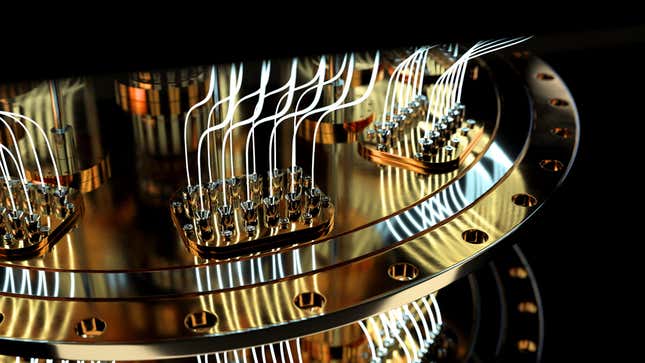
If you’ve ever wondered what quantum computers actually do, you’re not alone. The truth is, no one knows what modern problems this technology can solve. Google launched a multi-year, global competition on Monday to find real-world use cases for quantum computing, and the finalists will split $5 million.
“While there are many reasons to be optimistic about the potential of quantum computing, we’re still somewhat in the dark about the full scope of how, when, and for which real-world problems this technology will prove most transformative,” said Google in a blog post. “We hope launching this prize will help to shed light on these questions.”
Google launched this competition, XPRIZE Quantum Applications, alongside the Geneva Science and Diplomacy Anticipator (GESDA). Twenty finalists will share a $1 million prize and advance to the finals. Finalists must then provide technical specifications and prove that quantum computing is faster or more accurate than traditional computer solutions. The grand prize winners will receive $3 million, while runner-ups will split another $1 million prize.
Google has invested millions in quantum computing – the field has ballooned to an $866 million industry – but we still don’t know what to do with it. Most research around quantum computing concerns abstract problems, instead of real-world scenarios. The technology promises to accelerate drug development, uncover secrets about dark matter, and help solve the most fundamental mysteries of the universe. But currently, we can’t figure out how it’s more useful than your MacBook.
That’s no reason to get discouraged. In 1950, computers were the size of pickup trucks and had very few practical uses at all. Quantum computers are still in that early stage of development, and they still could revolutionize the world. The real question is how.
Google’s competition does not necessarily mean we will have use cases for quantum computing in three years, but it’s a step in the right direction. Researchers can submit near-term applications for today’s quantum computers, Noisy Intermediate Scale Quantum (NISQ) processors, and applications for the quantum computers of the future.
The quantum computing competition will be judged by researchers from Google, Amazon, and some of the best universities around the world. Hopefully, the competition will produce real-world use cases for the next generation of computing, and put this powerful technology to work.